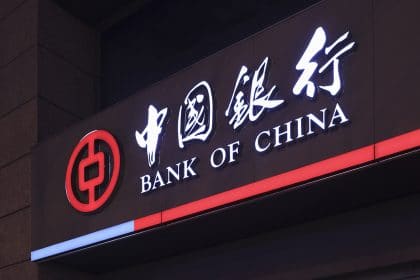The Bank of China went to the WeChat platform to highlight its concerns about Bitcoin. In a long post titled “3.15 protection of financial consumption rights and interest”, the bank warns the public on the risks of investing in Bitcoin.
In a series of posts on WeChat, the Bank of China vehemently disqualified claims that Bitcoin can be classified as a safe haven, due to its high volatility especially in this period of coronavirus outbreak. The post which was titled, ‘3.15 protection of financial consumption rights and interest’ clearly showed that the Bank is worried by the huge dominance of Bitcoin in the market.
The Bank’s statement that was put in Chinese said:
“First of all the amount of fraud transactions with bots are serious. The average turnover rate of the top three overseas cryptocurrency exchanges is much higher than that of foreign licensed exchanges. Second, market manipulation exist in these exchanges where forced leveraged trading eventually causes the exchanges to explode. Third, money laundering is a big issue.”
This comes as Bitcoin and the top-rated altcoins like ETH and XRP struggle to push beyond the current resistant level. At the time of writing, Bitcoin had fallen below the $6,000 level once more to trade at $5,800. Although a rise from last week’s lows, the crypto asset is still trading below the lows of the year, having wiped out all the gains made since the calendar flipped.
A similar situation has been with Ethereum and XRP. However, with major events like upcoming Bitcoin halving and Ethereum 2.0 fork, a boost in the market cap is expected to push the price value of the assets. Bitcoin on the higher time frame is consolidating but still the upward movement very much valid.
Does Bitcoin ‘Save Haven’ Status Stand against Claims by the Bank of China?
In the first place, let’s refer back to what a safe haven asset is. A safe haven is defined as an investment that is expected to retain or increase in value during times of market turbulence. Having the scale to measure which asset can be referred to as a safe haven, we can now be a better position of evaluating the claims by the Bank of China.
Due to the ongoing coronavirus outbreak that is spreading to many different parts of the world, most stock markets have tumbled to a point of being referred to as a recession. Major benchmark indices have been on the red for the better part of the year. This includes the crude oil prices that have drastically dipped due to a decrease in oil demand globally.
Initially, during the coronavirus effect, Bitcoin and other major cryptos were doing all fine. Not until Donald Trump ordered the closure of air travel with most European countries. As a result, Bitcoin fell from $9,000 to hit $3,800 in a week. Afterward, the crypto asset has recovered almost 20% to the current trading position. Having stabilized at that range, its market cap has been steadily rising.
One thing that is constant with crypto assets is the high volatility due to a lot of speculation involved in the trading. This now begs the question, has Bitcoin lost its so perceived ‘safe haven’ status? Only time can tell.
next